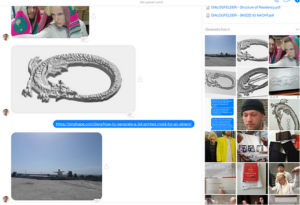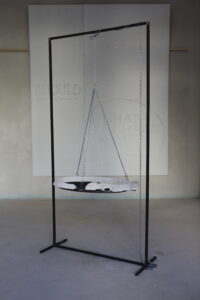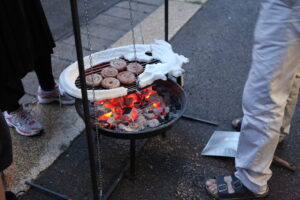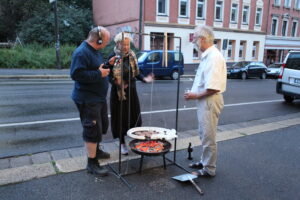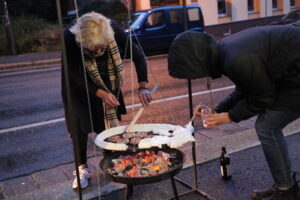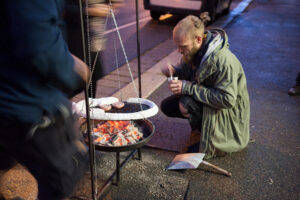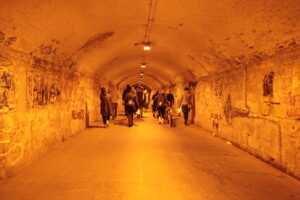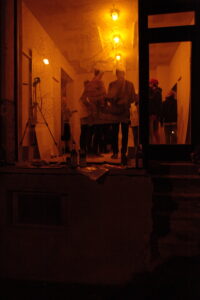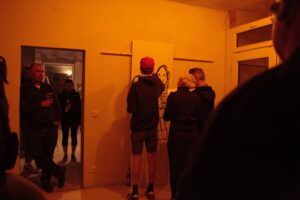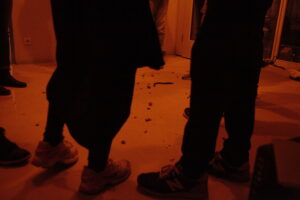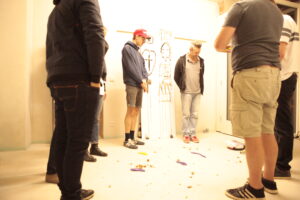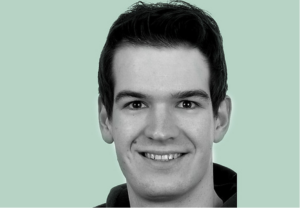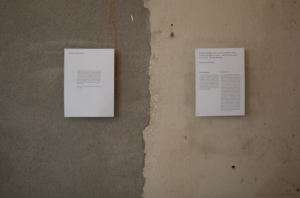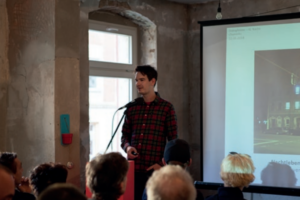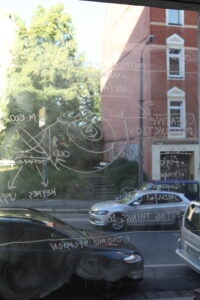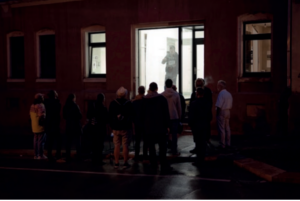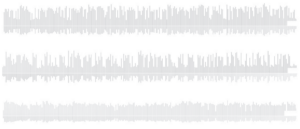Marthe Prins (Amsterdam, NL) and Benedikt Weishaupt (Berlin, D) have been working together since 2014. The themes of their work are investigative practices on the design language of privatized border security (Frontex), alternative wi-fi infrastructures and the optimization of individual wage labour.
Their first collaborative work Why One Internet - The Power of Mesh is a speculative exploration of alternative wireless network infrastructures developed by NGOs that often hide the geopolitical agendas of soft power and neo-feudalism behind their altruistic appearance. (with Gilles de Brock)
Through a performative lecture at the Royal College of Arts in London (with the Design Displacement Group), they reflected on their way of working in times of optimization and automation of labour in the age of networked capitalism, where companies try to spiritualize labour efficiency through quantified meditations and so-called productivity parties. The Design Displacement Group, a collective of 14 individuals, pursues an approach of collaborative production as a form of rejection and protest against individualized work, thus undermining individual authorship.
For and with We Are Here, a group of undocumented refugees, Weishaupt and Prins have examined the contradictory legal systems to which “rejected” refugees are subjected and designed a strategy to make them visible.
During the Dialogue Fields, Prins and Weishaupt will examine the concepts of “chaos” (feminine) “order” (masculine) in contemporary right-wing rhetoric and explore their connections to Joseph A. Schumpeter's work Capitalism, Socialism and Democracy. Particular attention will be paid to the interpretation of Schumpeter's “entrepreneurial spirit” by neoliberal and new right intellectuals. Prins and Weishaupt will question the “chaos theories” of star intellectuals such as Richard Florida and Jordan Peterson and their role in the normalization of aestheticized politics. Both bestselling academics utilize functioning academic models of the machinic - indices, classes, and plans - and construct theories through speculation and apospheric inventions of meaning. In discussing the role of poetry and performance within today's intellectualized right-wing agendas, Peterson, often called upon to intellectually underpin them, comes into play.

